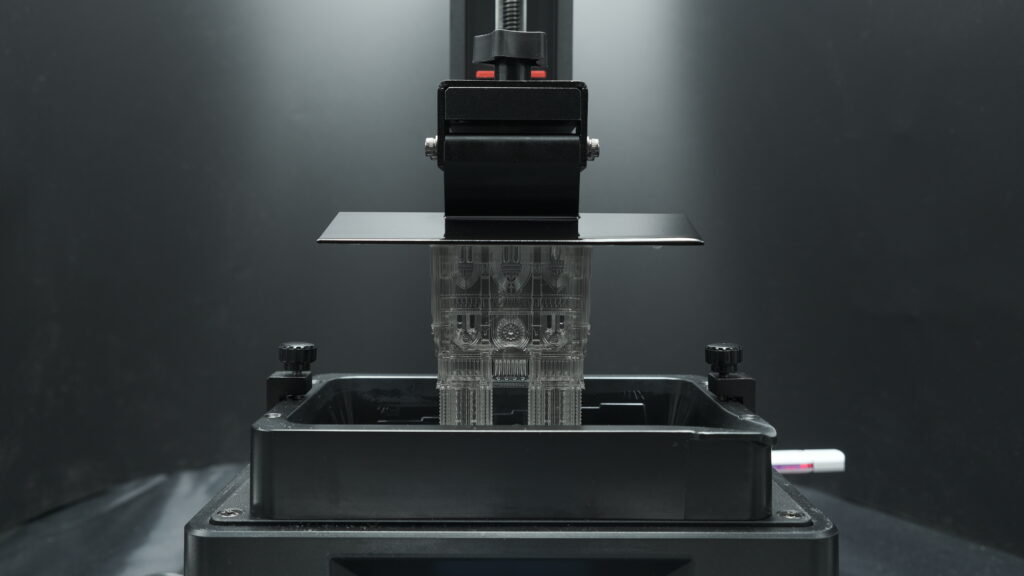Reducing 3D printing failures through temperature monitoring
Microfluidics consultancy Rapid Fluidics Ltd worked with STFC Hartree® Centre and the University of Cambridge to enhance 3D printing throughput as part of the Smart Manufacturing Data Hub (SMDH) programme.

Challenge
With its ease of design customisation and cost-effectiveness for small-scale production, 3D printing is increasingly used for rapid prototyping. Rapid Fluidics Ltd is a consultancy specialised in microfluidics – the control of fluids in microscale channels. Using their microfluidics and 3D printing expertise, they help clients accelerate idea-to-product transformation by 3D printing microfluidic prototypes. This enables early testing, accelerating innovation in applications like medical diagnostics and drug delivery. To meet tight turnaround times, Rapid Fluidics Ltd prints day and night. However, print failure rates are higher overnight, especially in cold winters. This is due to the temperature sensitivity of the liquid resin that is cured layer by layer with light during 3D printing.
Approach
By collaborating with the Hartree Centre and the Institute for Manufacturing at the University of Cambridge, Rapid Fluidics Ltd gained access to six temperature sensors to monitor their workspace. Sensors were placed near windows, deeper inside the building, and within 3D printers to directly measure material temperatures. Analysing the data revealed temperature variations across different locations and times, highlighting when and where temperatures dropped too low for successful printing. These insights enabled the company to optimise heating schedules, maintain stable conditions, and reduce print failures. As a result, they improved efficiency and ensured more consistent 3D printing outcomes, ultimately enhancing the reliability of their prototyping process.
Benefits
Rapid Fluidics Ltd achieved an 11% reduction in 3D printing failure rates through temperature monitoring enabled by the installation of sensors. By analysing the data provided from the sensors, the company could make data-driven adjustments to heating schedules to improve temperature control, especially on cold nights. This reduction in 3D printing failure rates corresponded to approximately 121 hours of printing time and cost savings of around £6000. This success has also helped the company improve client satisfaction for its rapid turnaround services, clearly demonstrating the impact of this collaboration.
“Access to real-time data of the temperature in our manufacturing facility allowed us to accurately track how print failures correlated with lower temperatures. This has allowed us to optimise heating, ultimately enabling us to deliver parts to our customers more quickly and reliably.”
Martin Thompson, COO at Rapid Fluidics Ltd
Join Newsletter
Provide your details to receive regular updates from the STFC Hartree Centre.

